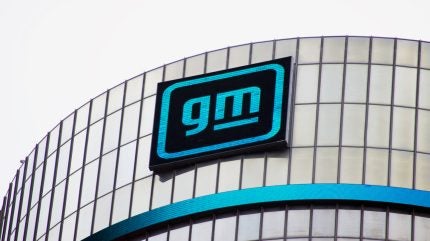
General Motors (GM) has decided to cease development of robotaxis at its majority-owned Cruise division, signalling a major shift in the company’s approach to autonomous vehicle technology.
The decision follows years of substantial investment and mounting losses in the self-driving vehicle sector, once touted as a cornerstone of the company’s future.

Discover B2B Marketing That Performs
Combine business intelligence and editorial excellence to reach engaged professionals across 36 leading media platforms.
The Detroit-based company cited the considerable time and resources required to scale the robotaxi business, combined with growing competition in the autonomous vehicle market, as key reasons for the move.
Cruise will now be integrated into GM’s division focused on driver assistance technologies.
Since 2016, GM has invested over $10bn in Cruise, with high hopes for its potential.
In 2023, CEO Mary Barra projected that Cruise could generate $50bn in annual revenue by 2030. However, the division’s financial challenges and the complexity of operating a robotaxi fleet ultimately made it unsustainable.
GM CEO Mary Barra said: “GM is committed to delivering the best driving experiences to our customers in a disciplined and capital efficient manner.
“Cruise has been an early innovator in autonomy, and the deeper integration of our teams, paired with GM’s strong brands, scale, and manufacturing strength, will help advance our vision for the future of transportation.”
The restructuring is expected to halve spending on the autonomous vehicle unit, reducing costs from $2bn to $1bn annually by the end of June 2025.
This decision aligns with GM’s broader pivot toward its most profitable ventures, including the production of gasoline-powered pickup trucks and large vehicles.
The automaker has recently scaled back its ambitions in electric vehicle production, sold its stake in a joint venture battery plant, and restructured its operations in China.
The robotaxi industry remains highly competitive, with players such as Alphabet’s Waymo, Baidu, and Tesla continuing to invest heavily in autonomous technology.
However, the high costs and technological challenges associated with fully autonomous systems have prompted several automakers to reassess their strategies.







